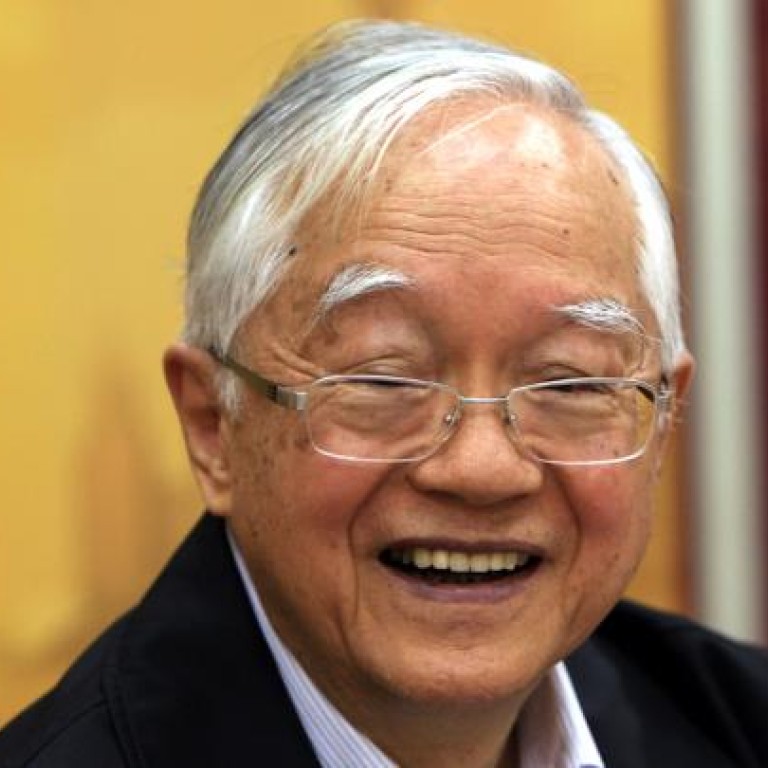
Economist warns of dangerous asset bubble on mainland
Economist Wu Jinglian, one of the mainland's best-known advocates of market reform, warned yesterday that excess domestic money supply was creating an increasingly unsustainable asset bubble.
Wu, a senior research fellow at the State Council's Development Research Centre, said the risk of an asset bubble was even greater than it was in Japan before its own bubble burst two decades ago.
"The consequences will be serious if there is any emergent problem that occurs," Wu said on the sidelines of a financial forum hosted by in Sanya, Hainan.
The Japanese asset bubble was fuelled by excessive monetary easing by the Bank of Japan and led to a recession after the bubble burst in the early 1990s.
Other economists have raised concerns about mainland China's own money supply. M2, the broadest money-supply measure, which covers cash in circulation and deposits, stood at 94.4 trillion yuan (HK$116.3 trillion) at the end of September, while its gross domestic product in the first three quarters was 35.3 trillion yuan.
"Have you ever seen any country in the world like this?" Wu said, adding that the government was too highly leveraged. "The debt level of the government's balance sheet is too high as the more notes issued actually means more debts."
East Asian countries found success maintaining high economic growth with exports, but almost all the export-oriented nations eventually saw excessive money supplies and asset bubbles, Wu said. Japan was merely the first to see its bubble burst.
China is an export-oriented economy, with exports and fixed-asset investment the two main drivers of economic growth.
The People's Bank of China and the Ministry of Finance have done a good job supporting the bubble, but it is not sustainable, Wu said. Beijing should overhaul its model for economic growth, making domestic consumption a major driver.
"But it will need government's support and fiscal policies to boost domestic demand," he said.
